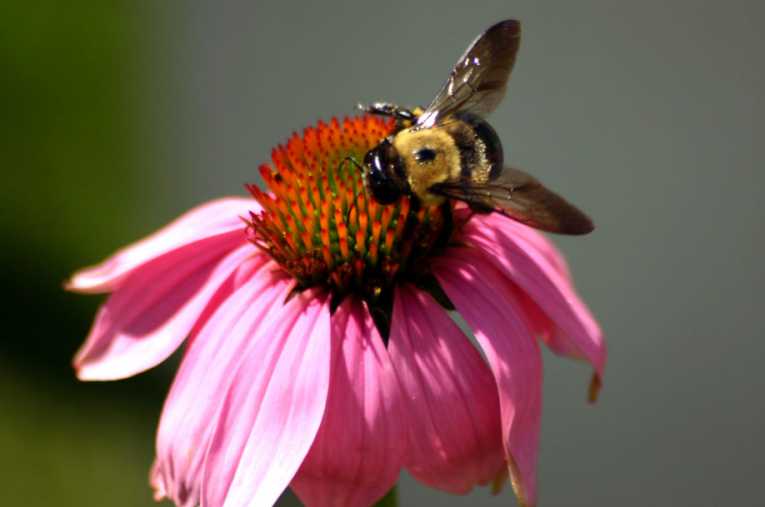The humble bumblebee may not generate the same number of column inches as the polar bear or the tiger, but its plight is arguably just as alarming.
Over the past few years, a number of reports have served to highlight the seriousness of the problem in Europe, with research carried out in 2008 revealing that three of the 25 species found in the UK are now technically extinct and many more look likely to go the same way.
Now, a team working at the University of Illinois have announced the completion of the first large-scale study to be carried out into populations across the US since records first started to be kept back in the late 1800s. Their conclusions do not make for easy reading for conservationists.
The Chicago-based scientists analyzed the numbers and geographic distribution of eight of the 50 types of bumblebee found in North America, carrying out surveys at 400 separate sites and placing these alongside around 70,000 museum records, some of them dating back more than a century.
Notably, upon assessing the data, the team concluded that the population sizes of four of these eight species of bee have fallen by as much as 96 per cent over the past two decades alone, essentially making them all on the verge of inevitable extinction in the US. Exacerbating the problem is that as population sizes and geographical ranges shrink, the genetic diversity of these four species of bees is being similarly reduced, leaving them more likely to be infected by the often-devastating Nosema bombi parasite.
"We have 50 species of bumble bees in North America. We've studied eight of them and four of these are significantly in trouble," explained lead researcher entomology professor Sydney Cameron, writing up the findings in the Proceedings of the National Academy of Sciences.
"They could potentially recover; some of them might. But we only studied eight. This could be the tip of the iceberg," she added.
That the bees are in trouble is not in question. However, what is still up for debate is quite why such a decline is taking place, and why so rapidly. Climate change is an obvious answer, as is habitat loss, though quite how these factors are directly impacting upon US bee populations has yet to be determined by the scientific community. In correspondence with the Earth Times, Professor Cameron suggested that, unlike in the UK and the rest of Europe, where the 'potent cocktail' of chemicals found in agricultural pesticides have been blamed for causing neurological problems in bees and therefore driving their decline, this is unlikely to be the case in the US, not least since this would most likely affect all species rather than just a proportion.
And therein lies the silver lining of this particular cloud; while some species may well be in decline, others may not be. Furthermore, the University of Illinois team have noted, it may well be the case that the role that the threatened species play in pollinating plants could be taken up by other types of bumble bee. Only time – and further studies – will tell, though should it be the case that this is indeed just the "tip of the iceberg" and that the gap in pollination cannot be plugged by different species, then, they acknowledge, "we are in trouble".
As the UK-based Bumblebee Conservation Trust warned just a couple of years ago, this would not simply be a matter of one type of insect disappearing for good, but could pose a great threat to wild habitats across Europe, and therefore, across the US as well.
"There are lots of plant species out there which will never produce offspring without the bumble bees to fertilize them," the organization's founder Professor David Goulson explained. "If the plant disappears it will then cause the disappearance of lots of other species [higher up the food chain] leading to ecological disaster."










